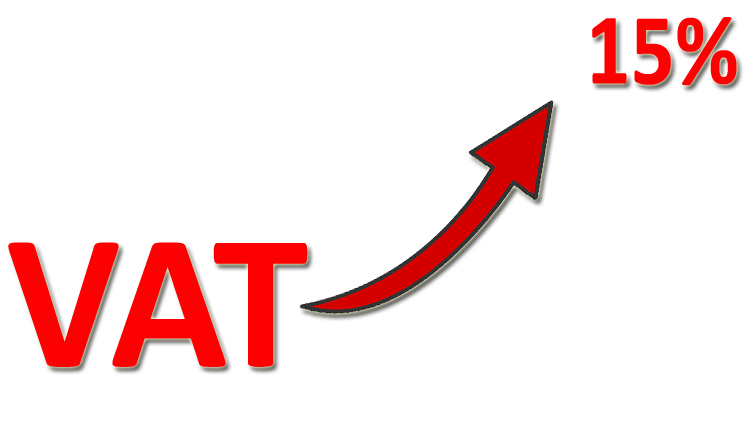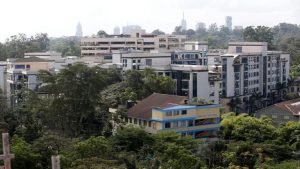Consequent to the Budget speech by now former Finance Minister, Melusi Gigaba to increase Value Added Tax (VAT) from 14% to 15%, there has been a widespread protestation.
This outcry comes mainly from organisations (and individuals) that pride themselves as representing the poor under the assertion that VAT affects them, most.
While we appreciate this argument, one believes that the academic argument is overstated. It is fair to say the basket (19 basic food items) of zero-rated goods remains untouched, and these zero-ratings remain an important relief mechanism for the poor. Moreover, despite the academic argument, the increase by 1 percentage point from 14% to 15% will be felt by all, even wealthier households. In fact, the total amounts paid by individual middle and upper income households will actually be much higher than individual poorer households. The poor also receive increase in social grants. The wealthiest, estimated at 30% of households, contribute 85% of VAT revenue and will likely bear the largest share of the increase in absolute terms.
Given the consternation, the question to be asked is what other (meaningful) options did Minister Gigaba or to be exact, National Treasury have? Given the projected R50.8bn revenue shortfall that was announced during Medium Term Budget Policy Statement (MTBPS) -now revised to R48.2bn shortfall, the only quick and certain tax increase was indeed the VAT. The biggest contributor to state coffers is persons and individuals at 37%, followed by VAT at 25%, companies at 18%, fuel levy 5.5%, customs duties at 4%, specific excise duties at 3%, other taxes at 5%. While Government has been utilising the other taxes for increased revenue, only in 2018 (when little or no further options were remaining) did government finally succumb to a raise in the VAT rate.
When closing the revenue gap, Treasury has three choices. Outlined below are the specific cases against personal and corporate income taxes with the VAT being the only viable option.
Case against increase Personal Income tax:
– South Africans are “tax-fatigued” in terms of the personal income tax given the prior increases over the past few years (also note that the current budget does not fully adjust against the adverse impact of inflation in terms of tax bracket relief).
– The current “top” personal income tax rate is 45% (“super tax bracket of 45%”) for individuals – the second highest in Africa (with Zimbabwe having a 50+ top bracket). About 1.5% or roughly 110 000 (109 783) registered taxpaying individual taxpayers fall into this category, but account for about 26% of the overall income tax payable. It’s futile and counter-productive to increase the tax bracket for this very narrow base of taxpayers who now find the burden unsustainable.
– For South Africa to prosper, Treasury needs to demonstrate that it supports the culture of savings – VAT is the only tax that leaves savings fully intact.
– Each tax payer is supporting more and more people at home.
– An additional personal income rate would have greater negative consequences for growth and investment than a VAT increase.
Case against increase in Corporate Tax:
– Business is the lifeblood of any economy. [“Government is looking at steps to avoid erosion of corporate tax base and prevent profit shifting and to remove or redesign wasteful tax incentives”.]
– The prevailing view is that at current levels of 28% corporate tax, SA corporate tax is already high.
– Falling corporate income tax rates in advanced and middle-income countries affect South Africa’s global competitiveness. This trend limits the room to increase (or even maintain) the tax rate on business. [US reduced its rate from 35% to 21%, NL from 26% to 21%, UK from 30% to 19%. China is at 25%.]
– Increase in corporate tax, while other countries are looking at reducing (it) and without proper engagement, would have likely chased business away.
Case for VAT increase:
– VAT has not increased for at least 24 or 25 years.
– The impact of the VAT increase on the poor is largely symbolic. The effective rate change for the poor is roughly 0.91% versus 0.61% for the wealthy is largely symbolic. The 0.3% differential is insignificant.
– However, VAT is a pragmatic and easily implemented way in which to raise additional funding. However, it a regressive tax and to make it progressive quickly complicates the tax regimen.
– Granted, raising VAT as a broad base also seems to be “politically unpalatable” in the current setting but our fiscus are running low. Sacrifices are urgently needed.
– Raising the VAT by mere 1% will generate approximately R22bn within the first year. No other tax increase generates this amount of revenue in as short a period.
– South African has one of the lowest VAT rates on the Continent.
– While there is understandable outcry on affordability, it is again worth noting that some foods are zero-rated. The addition of one or two additional zero-items for items used exclusively for the poor should more than offset the general 1% increase.
– Following Sutton’ law, VAT is, amongst the three scalable options, pragmatic and least damaging to economic growth (including development as well as employment prospects).
Of course, it was a question of choice. The tax policy measures are designed to raise additional R36 billion revenue in 2018/19. These measures, along with public spending cuts will contribute to reducing budget deficit cuts and funding fee-free higher education and training for poor and working-class students.
The real work where we need to hold our government accountable is on arresting inefficiencies and demand better management of our resources. We have the state/government searching for more funds, yet two of our largest spending departments are education and healthcare, which spend more that middle-income countries as a percentage of GDP with worse-than-average results. In other words the wasteful spending that is spoken about is “superficial” – the real issue is the gross mismanagement of this scarce resource. Improved management will achieve much better results with same spending, and the last thing we should be doing is looking for new ways to fund bad habits.
The largest single balance sheet in South Africa sits under state ownership, with a reported asset of R1.2tn in the Budget Review (2017). However, this asset is being grossly mismanaged with a return on asset that averages just 3% per annum over the last five years versus a cost of capital of 8% per annum over the same period. In itself, this represents an opportunity cost of 5% of R1.2tn or R60bn per year. There is a tragic poetic element that revenue gap is close to R60bn. Add to this the observation that the return on asset for large publicly listed companies in South Africa stands at around 12% – 13% per annum and the lost income on state assets is in the order of R120bn per annum (R1.2tn*13% less R1.2tn*3%). There are many ways in which this lost opportunity could be “corrected” to quickly close the funding gaps and, in short time, begin to generate an annual operating surplus that would contribute to state coffers.
A key element is to reverse economic growth. In itself this solves the problem. A back of the envelope calculation shows that lifting growth from 1.0% (last three years) to 3.5% (our structural average) would add R100bn per year to GDP, of which 30% would go to the fiscus, of R30bn per annum. Lift the growth rate to 5.4% and the fiscal take rises to R54bn per year without moving the tax schedule in any way.
Sizwe Mbele is the Director of Strategy at Business Leadership South Africa






